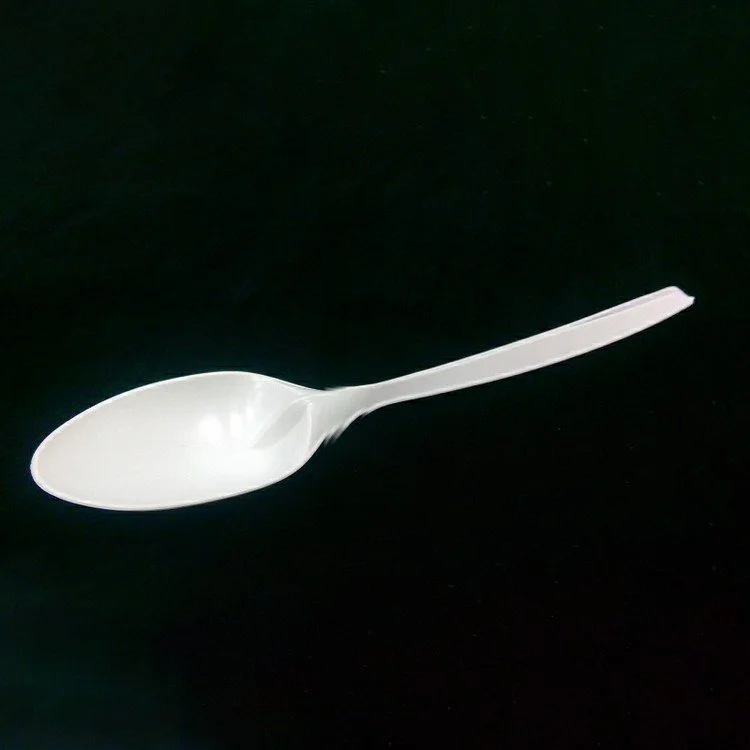Sustainable Biodegradable Plastic & Paper Cutlery Sets In Singapore
Whether you are offering quick takeaways from your restaurant, operating from a food truck at a festival, or an individual planning for a picnic, when it comes to food on the go, disposable cutleries are the way to go to not only enjoy the food but also observe hygiene and practicality.
However, the thing about conventional disposable cutlery is that they are usually made from one-time-use plastics that are manufactured using finite fossil-fuel resources. With the increasing concerns about plastic waste and its detrimental effects on the environment, we believe in providing eco-friendly alternatives that do not compromise quality.
Looking for an eco-friendly and sustainable alternative? Look no further than SKP’s range of sustainable and biodegradable plastic cutlery. This biodegradable plastic cutlery set includes plastic knives, spoons, forks, chopsticks, and more! Every of our biodegradable plastic cutlery has a significantly smaller carbon footprint than its conventional counterparts.
Join us in making a greener choice without sacrificing convenience and discover the perfect solution for your eco-conscious dining needs. Check out our range below.
What is biodegradable cutlery?
The terms ‘biodegradable’ and ‘compostable’ are often used interchangeably. However, there is a distinct difference between the two. Biodegradable cutlery is made using materials that break down naturally by microorganisms into organic substances, such as water, biomass, and natural gases, that are then reabsorbed by the environment.
Compostable cutlery, on the other hand, is usually made using materials that will break down into completely pure and healthy soil in a compost pile or a commercial compost facility. They are usually made of plant-based materials, such as bamboo, sugarcane, and wood.
SKP’s biodegradable cutlery set is designed to break down through natural biological processes, which can vary depending on the material and the environment in which they are placed.
How long does it take for biodegradable cutlery to decompose?
There are two types of biodegradable cutlery SKP offers:
Biodegradable plastic: SKP’s range of biodegradable plastic products, also known as EcoVue, is made using an innovative method called BioTransformation, which involves combining a biodegradable additive with polypropylene, allowing the utensils to be 100% biodegradable within 1 to 5 years.
Wooden Cutlery: Our wooden cutlery set, which includes a knife, spoon, stirrer, fork, and chopstick, is not only sustainable but also extremely durable.
Learn more about our wooden cutlery here.
How long does it take for biodegradable cutlery to decompose?
Depending on the type of material used, the decomposition time can vary anywhere from a couple of weeks to even a couple of years to break down completely.
Why use biodegradable utensils?
Single-use plastic cutlery is not recyclable! As a result, many of them are being thrown away after a short period of use, where they will eventually end up in landfills and, more often than not, our waterways. Studies have shown that humans, till today, are generating more than 350 million metric tons of plastic waste each year, with the numbers projected to triple by 2060.
SKP’s biodegradable cutlery is one of the most environmentally friendly in Singapore. Not only are the final products an ideal alternative to conventional plastic counterparts, but their manufacturing process is also environmentally friendly – solar-powered manufacturing plants. Whether you are looking for biodegradable plastic spoons, knives, stirrers, forks, or chopsticks, they are durable enough to handle a variety of foods, including dense and heavy items. You can rest assured that you are selecting convenience without having to harm the environment.
Benefits of using biodegradable utensils
You will:
Save plastic cutlery from littering the ecosystem without sacrificing the convenience of disposable utensils
Improve air quality by decreasing the production of greenhouse gas emissions
Live healthier by reducing exposure to toxic chemicals
Conserve fossil fuels, which are non-renewable resources
Contribute to healthier soil through composting, providing nutrients for better agricultural growth
Frequently Asked Questions (FAQ)
-
Using biodegradable cutlery significantly reduces the carbon footprint by minimising waste that ends up in landfills. At SKP, we manufacture our EcoVue products locally in Singapore using solar power, further decreasing our carbon footprint. This shortens supply chains and reduces transportation emissions. Choosing eco-friendly options, such as biodegradable cutlery sets and paper food packaging, supports sustainable practices and fosters a healthier environment
-
Yes, our biodegradable cutlery is designed to be durable and versatile. They are suitable for a wide range of food items, from hot meals to cold salads. Our products ensure a reliable and eco-friendly dining experience, perfect for both casual and formal occasions in Singapore.
-
Our biodegradable cutlery includes both biodegradable plastic and wooden options. The biodegradable plastic cutlery is made using BioTransformation technology, which combines a biodegradable additive with polypropylene to ensure full biodegradability within 1 to 5 years.
-
Biodegradable cutlery is ideal for anyone looking to reduce their environmental impact, including individuals, families, businesses, and event organisers. Whether you're hosting a party, running a restaurant, or aiming to make more sustainable choices in daily life, our eco-friendly cutlery sets and paper food packaging in Singapore are perfect for those committed to sustainability.
-
Disposing of biodegradable cutlery is simple and eco-friendly. Avoid throwing them into regular trash bins, as they may end up in landfills where decomposition is inefficient. Instead, follow local waste disposal guidelines: place used cutlery sets in organic waste bins, and take biodegradable plastic cutlery to appropriate recycling facilities. It is also important to note that even if SKP’s EcoVue products do end up in landfills, they are lab-tested to biodegrade around 64.3% in 205 days and fully within 1 to 5 years, depending on conditions. Proper disposal ensures maximum environmental benefits.

































